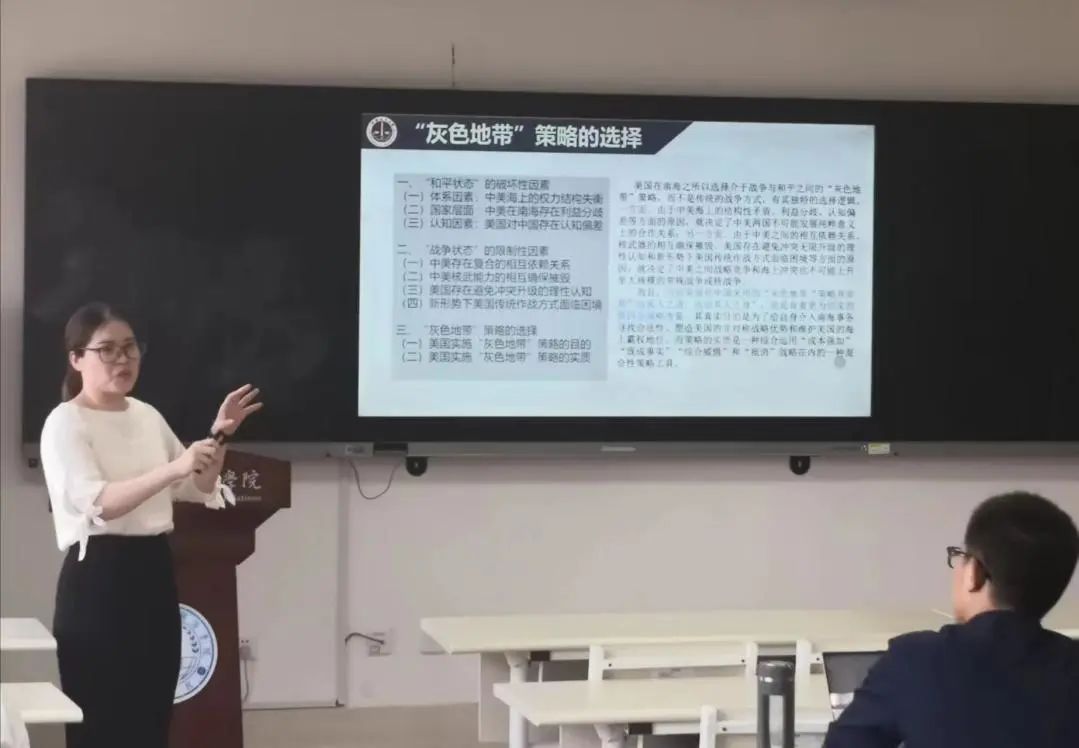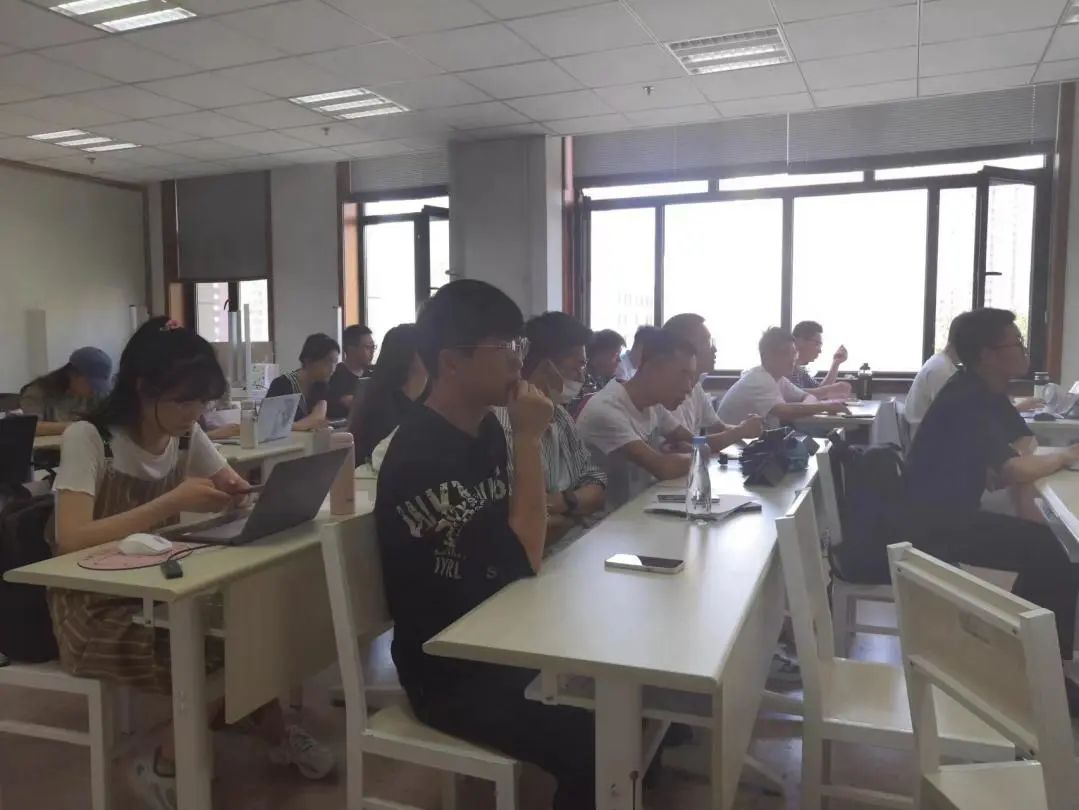On the morning of June 17, 2022, at the invitation of the School of Politics and International Relations of Lanzhou University and the Institute of Central Asian Studies of Lanzhou University, Mr. Wang Erfeng gave an academic lecture entitled "The United States' 'Grey Zone' strategy in the South China Sea: Current Situation, Causes and Implications" for the teachers and students of Lanzhou University. The lecture was hosted by Mr. Li Yibin and attended by more than 30 students. First of all, teacher Wang Erfeng introduced the question and research background. Today, a new set of terms is emerging to describe the contemporary state of war and the means of warfare between war and peace. With its unique behavior characteristics and ways, "gray zone" has been constantly hyped and used by American officials and military circles, which makes it become an important topic of academic attention and research at home and abroad. Therefore, Mr. Wang raised a series of questions in this lecture: What is the specific meaning and behavioral logic of the "gray zone"? Why does the United States continue to hype up China's "gray zone" behavior and implement a full-spectrum "gray zone" strategy in the South China Sea, and what is its motivation and purpose? In the face of the increasingly "gray zone" conflicts at sea between China and the United States, how to manage and respond?

Then, on the basis of existing literature and data, Teacher Wang reviewed the concept of "gray zone", described its behavior characteristics, and summarized several strategy types and conflict modes of "gray zone" strategy. Among them, Mr. Wang specifically clarified some disputes about the concept of "gray zone", such as whether it is "war", whether it is linked to "revisionism" and so on. Moreover, through this series of combing, we can see the significance and value of the "gray area" research. As for the reasons, manifestations and behavioral logic of the "gray zone" strategy implemented by the United States in the South China Sea, Mr. Wang also gave the following answers. First, as China accelerates the modernization of its maritime forces, expands its overseas interests to the whole world, and increases its regional influence, it has caused unease and anxiety in the United States. As a result, the United States has undergone a series of turns in its South China Sea policy, and has taken advantage of its asymmetric advantages to compete with China by adopting various strategies such as "narrative war", "issue linkage" and "freedom of navigation operations". Therefore, she believes that the behavior logic of the United States to choose the "gray zone" is based on the consideration of structural contradictions and proactive strategic shaping. Its real purpose is to seek legitimacy for its own intervention in the South China Sea affairs, shape the asymmetric strategic advantage of the United States and maintain its maritime hegemony. The essence of the strategy is a combination of "cost imposition", "fait accompli", "comprehensive deterrence" and "offset" strategies. This also means that the United States' "gray zone" strategy in the South China Sea will be a long-term agenda and tool of choice for the United States.

Finally, Wang also talked about the influence of the United States and China's response to this "gray zone" strategy. As bilateral relations are of great significance to world peace and stability, in the face of the uncertainties brought about by the "gray zone" competition between China and the United States in the South China Sea, it is urgent for China and the United States to exercise strategic restraint, prevent small problems and manage potential "gray zone" conflicts between China and the United States. China should adhere to the bottom line of sovereignty, maintain development focus, explore flexible and changeable ways to respond, and reduce and offset the negative impact of the "gray zone" strategy implemented by the United States. In this lecture, Wang Erfeng deeply explored the value and significance of the "gray zone" theory, which helped the students of our college to deeply understand the South China Sea issue and stimulate the students' thinking about the profound adjustment of the international situation and the change of the mechanism of winning the war. So far, this lecture has come to a successful conclusion.
